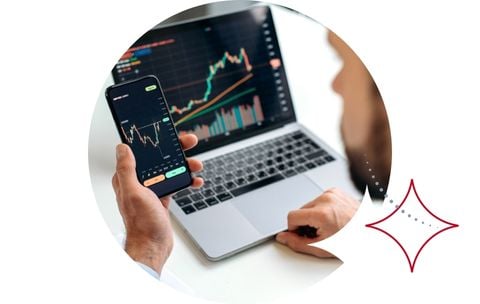What is the Difference Between Spot Exchange Rate & Forward Exchange Rate?

When thinking about exchange rates in foreign exchange, it’s easy to think only of the current rate of exchange between two currencies. However, there is more to this, as there are what’s known as the spot exchange rate and the forward exchange rate.
Find out what the difference is between them.
What is a spot exchange rate?
3 minute readThe meaning of a spot exchange rate is the real-time price quoted for the instant settlement of purchasing a currency, also known as the current exchange rate. If you were to purchase currency immediately, you would do so at the current rate of exchange.
Elaborating on this, a spot contract is an agreement between you and a foreign exchange provider to buy foreign currency at the present exchange rate. This contract is the most traditional and common form used in FX, and it is best used for your imminent currency transfer needs.
One of the biggest benefits of a spot contract is that you can secure the current exchange rate and buy the currency without setting a target that might not be reached. Thanks to the immediacy of spot payments, your business will be aware of its costs and currency exposure as soon as you make the transaction.
What is a forward exchange rate?
The basic meaning of a forward exchange rate is a currency exchange rate at some point in the future. To explain this more fully, this rate is a specified price agreed on by you and your FX provider for purchasing a currency at a specific future date. Using a forward exchange rate can be speculative if you think that the future exchange rate between two currencies will be higher than the current forward rate. If you’re looking to sell currency, you can use forward rates to reduce the risk that the future price will decrease.
No matter what the spot exchange rate is at the time the forward exchange rate matures, the contract will be executed at the agreed-upon forward rate.
A forward contract is an agreement which allows you to lock in the prevailing exchange rate so that you can pay an upcoming invoice in a foreign currency, protecting you against currency market fluctuations.
One of the biggest benefits to this is that you can plan ahead with some certainty, as you know how much money you will spend when you make purchases with a foreign currency. If the spot exchange rate is in your favour, it’s sensible to lock that rate, as doing this will protect you from unfavourable movements. Whatever happens in the market, you will receive the forward exchange rate that you secured with your forward contract.
Spot exchange rate vs forward exchange rate: Key differences
The key difference between the spot exchange rate and the forward exchange rate is that the spot exchange rate is the current rate at which you agreed to a currency trade, while a forward exchange rate is the rate that you lock in for an agreed-upon period. This means that up and down movements in the market will not affect the rate you locked in through taking a forward contract.
Sign up for a business account with Moneycorp
There’s a good chance that you will use spot exchange rates and forward exchange rates in your business and in your FX trading. One of the best ways to use either is to take advantage of our spot contact and our forward contracts. These are only two of the many FX solutions we offer. Sign up for a business account with Moneycorp and use the solutions that best meet your business’ needs.


